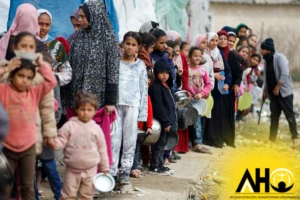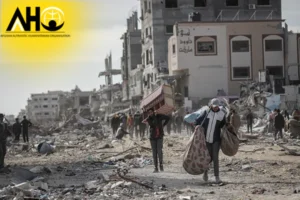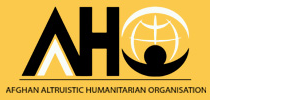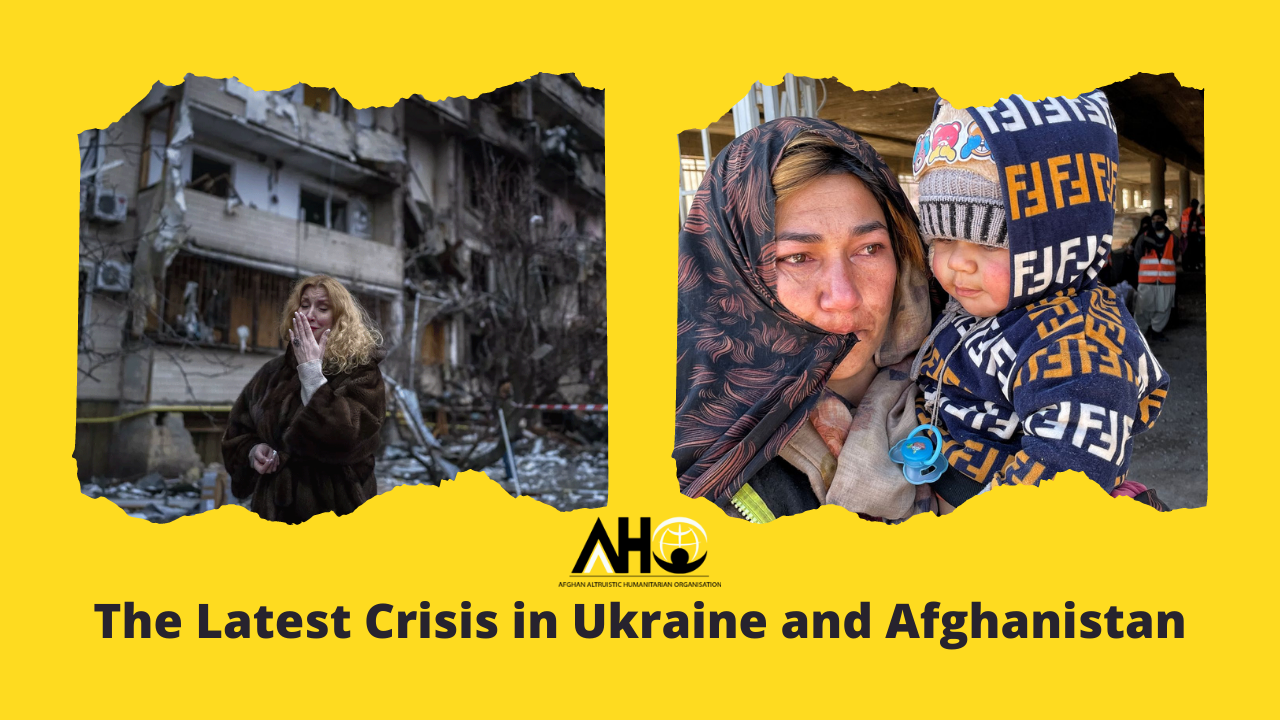The Gaza Humanitarian Crisis: A Critical Moment for Action.
The humanitarian situation in Gaza has reached an unprecedented level of severity. According to the latest reports from international agencies and humanitarian organizations, Gaza is facing a multidimensional crisis involving widespread civilian casualties, mass displacement, healthcare system collapse, and acute shortages of essential resources such as fuel, food, and clean water.
A Rapidly Deteriorating Situation
As of mid-July 2025, over 58,000 Palestinians have reportedly lost their lives since the beginning of the conflict, with a significant portion of the casualties being women and children. The intensity and frequency of military operations, including airstrikes and ground incursions, have resulted in widespread destruction of homes, hospitals, and basic infrastructure.
 Over 90% of Gaza’s population has been displaced, many of them multiple times, as civilians flee repeatedly due to evolving frontlines and evacuation orders. Vital services—such as electricity, sewage treatment, and transportation—have either collapsed or are functioning at minimal capacity.
Over 90% of Gaza’s population has been displaced, many of them multiple times, as civilians flee repeatedly due to evolving frontlines and evacuation orders. Vital services—such as electricity, sewage treatment, and transportation—have either collapsed or are functioning at minimal capacity.
Health System on the Verge of Collapse
Gaza’s health infrastructure is operating under near-impossible conditions. According to the United Nations and humanitarian partners:
-
More than 80% of hospitals and clinics have been damaged or destroyed.
-
Critical shortages of fuel have left ambulances stranded and medical devices inoperable.
-
Access to clean water is nearly non-existent for most families, leading to outbreaks of waterborne diseases.
-
More than 5,800 children were diagnosed with acute malnutrition in June alone. UNICEF projects that over 70,000 children under five will require urgent treatment for malnutrition in the coming year.
The lack of fuel, clean water, medical supplies, and safe shelter threatens to push the humanitarian situation beyond recovery.
Civilian Safety and Access to Aid
Ongoing hostilities continue to pose a significant threat to civilian safety. Recent incidents have resulted in the deaths of civilians, including children, near aid distribution centers and water collection points. These events have raised international concern about the conduct of military operations and the urgent need to protect humanitarian corridors.
Despite calls for a ceasefire and ongoing negotiations, the delivery of humanitarian aid remains severely limited. Agencies such as UNRWA, the Red Cross, and Médecins Sans Frontières have warned that without immediate and sustained access, thousands more lives are at risk.
How the International Community Can Help
 The crisis in Gaza demands a robust and coordinated international response. As a humanitarian organization, we believe in the power of collective action and the responsibility to protect vulnerable communities in times of extreme need.
The crisis in Gaza demands a robust and coordinated international response. As a humanitarian organization, we believe in the power of collective action and the responsibility to protect vulnerable communities in times of extreme need.
We urge the global community to:
-
Support Emergency Aid: Contribute to emergency funds focused on fuel, medical supplies, nutrition programs, and shelter.
-
Advocate for Humanitarian Access: Engage with national governments and international bodies to pressure all parties to uphold international humanitarian law and allow safe access for aid organizations.
-
Raise Awareness: Share verified information, amplify the voices of civilians on the ground, and help counter misinformation.
-
Collaborate with Local and International Partners: Strengthen coordination with trusted humanitarian networks to ensure efficient and ethical delivery of aid.
Conclusion
The crisis in Gaza is not only a humanitarian emergency—it is a test of our shared values and collective humanity. The destruction of infrastructure, the loss of life, and the suffering of families cannot be viewed as collateral damage. Every life matters. Every moment counts.
As an organization committed to justice, dignity, and human well-being, we stand in solidarity with the people of Gaza. We call upon our partners, supporters, and all members of the international community to act decisively and compassionately.
Together, we can help protect lives and restore hope.



